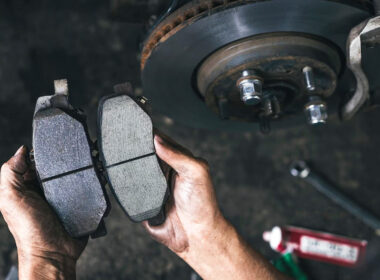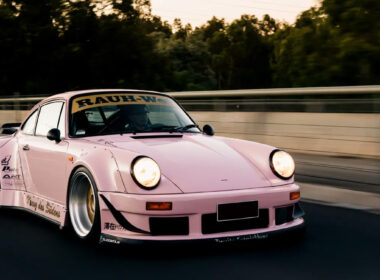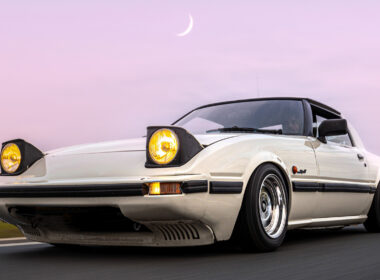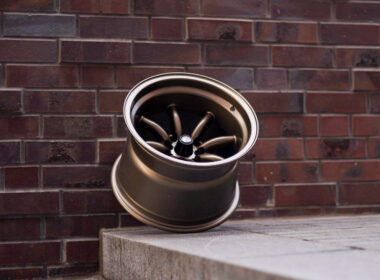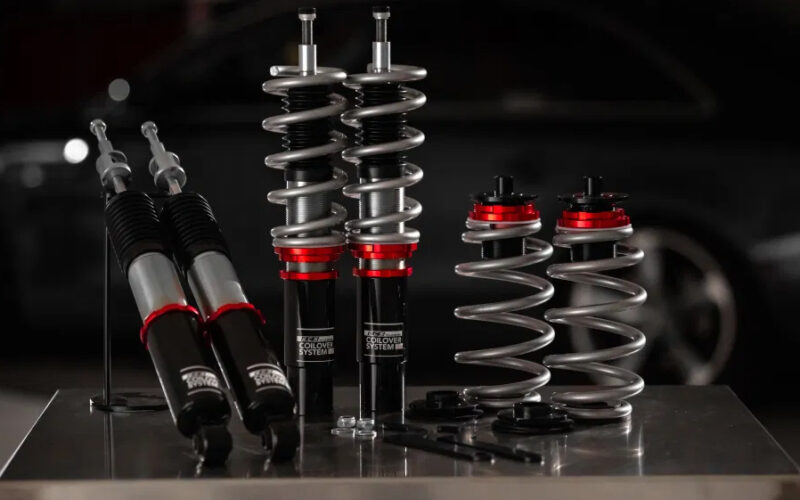Replacing your OEM struts with coilovers is a quintessential suspension upgrade if you want to make your car handle better, maintain traction, and go fast around corners. It’s the most popular aftermarket mod among street and track-driven cars for a reason.
Coilovers can be adapted to your car and your driving style by means of adjustable compression, damping, and ride height . The best part? They’re available across a wide price range, making them suitable for pretty much any budget.
Whether you want an inexpensive set of coilovers for your daily driven street car, or a top-shelf triple-bypass system with adjustable valving for your trophy truck, you’ll find it here at Suspension Setups.
Read along as we discuss some things you need to consider before purchasing a set of coilovers.
What Coilovers Do

Coilovers allow you to replace your OEM suspension, which includes your shocks, springs, and top mounts. They’re incredibly easy to install and replace as needed.
The objective is to override the factory ride height, damping settings, and spring rates in favor of something that you can tune to your liking, along with added caster and camber adjustment.
If you do everything correctly, you’ll have:
- Reduced body roll
- More traction through fast corners
- Better handling overall (not the same thing as ride quality)
- Lower ride height
Considerations
No matter how much you spend, if you simply install the first set of coilovers that you like the look of, without considering their specifications and your intended use, you might just end up dissatisfied with your purchase.
First, assess the quality of materials and construction to ensure durability. Next, check the adjustability options for both height and damping to match your driving needs. Then verify compatibility with your specific car to avoid installation issues. Finally, consider the brand’s reputation and customer reviews to gauge overall satisfaction and performance.
Those are the basics. Below we’ve listed some more factors you need to consider before zeroing in on a set of coilovers for your car.
Coilovers Street and Track Cars

People who drive their cars to the track can really use the extra adjustability to switch between different handling profiles.
Enthusiasts with dedicated track cars prefer high-end coilovers that focus on durability, heat management, and race-ready valving with a digressive or regressive damping curve. These cost thousands of dollars, but they’re well worth it — especially it if you’re serious about shaving seconds off your lap times.
On the other hand, people who daily drive their cars and engage in spirited driving every so often are better off with less-expensive midrange coilovers.
These aren’t as advanced as their race-focused counterparts, but they’re well made and get the job done. You still get all the benefits that come from having a lower center of gravity and performance-focused adjustable suspension, while offering some degree of ride comfort, depending on the chosen spring rate.
That said, some manufacturers like Stance USA make high-end coilovers that are specced and priced alongside the likes of KWs or H&Rs, but they’re built for street use. So that’s a category you can consider if budget isn’t a problem and you want something nice for your daily driver.
And finally, you have the really affordable entry-level coilovers from lesser known brands; these are perfect for enthusiasts who are eager to lower their car and absolutely do not wish to keep their stock suspension for whatever reason.
They’re also a great option if you simply want a cheap set of coils that you can throw on to your 2nd or 3rd project car. From a quality perspective, they’ll definitely get you there, but don’t expect precision and great craftsmanship.
4×4 Coilovers

A lot of the rules change when you compare coilovers for off-road use and track use. Even though the two are fundamentally the same, they fulfill vastly different needs.
Off-road coilovers tend to be more expensive and intricately designed because they cater to more demanding applications and driving requirements. This calls for superior engineering, which means higher manufacturing and R&D costs.
Some of their key features include:
- Increased ground clearance and ride height for better approach and departure angle
- More compression and droop travel for better wheel articulation
- Option to choose between a variety of damping curves suitable for different terrain and speeds
- Position sensitive damping, although you only get this feature on high-end coilovers
If your truck hardly gets any trail-time and most of your driving is done on the street, then you can get away with a simple leveling-kit, entry level coilovers, or even your stock suspension.
However, if you want a bit more headroom in terms of what your truck can handle, then spending a bit more on midrange coilovers makes sense. That way, you’ll have a rig that can handle daily driving and light trails.
High-end stuff is best utilized by enthusiasts who take off-road driving very seriously. If you’re into rock crawling, mudding, competitive racing, or simply want no limits on what your truck can do, then you’ll need coilovers that offer features such as:
- Zone control
- External reservoirs
- Bypass tubes for position sensitivity
- Application specific valving
- Rebuildibility
Understanding Threaded Shock Bodies

All coilovers have either partially or fully threaded bodies. Threads help to enable the use of locking collars; some coilovers have 2 collars, while others have 3. The first collar (closest to the spring) helps to keep the spring captive by pushing it up against the upper perch. The 2nd collar’s job is to keep the first one locked in place.
Some coilovers, usually the cheaper ones, have a 3rd collar, and its purpose is to lock the adjustable lower mount. This is a feature that you’ll only find on fully threaded coilovers, because in order to be adjustable, the lower mount needs threads to latch on to.
It’s a neat little trick that allows manufacturers to use a generic shock body with a car-specific lower mount. That way they can keep manufacturing costs down and advertise the “independent ride height” feature.

Adjustable lower mounts make it possible to extend the length of the coilover, which basically gives you adjustable ride height. This is something you can’t do with partially threaded coilovers because the lower mounts are fixed, which isn’t necessarily a bad thing.
In fact, many well-made coilovers that are fully threaded have fixed lower mounts. Adjustable mounts sure do make it easier to adjust your ride height, but that’s usually at the expense of reduced shaft travel. That’s why it’s a feature advertised in entry-level coilovers.

Here’s the best coilover configuration for street cars:
- Monotube damper
- Fully threaded, single-piece shock body
- Fixed lower mount (two-collars)
You’re probably wondering how to adjust the ride height if the lower mount is fixed. Most people tend to use the 1st (preload) collar to compress the spring to lower the ride height, but that’s a bad idea. Coilovers for street and track cars are by default shorter than the OEM struts they’re replacing, so you’ll get a decent drop in ride height simply by installing them.
Don’t Use Preload to Adjust Ride Height

Increasing the spring preload sure does make the spring shorter, and it doesn’t even affect the spring rate. However, beyond the recommended amount, too much preload will compress your damper at rest.
This is bad because you not only lose damper travel, but you also mess with the damping curve by compressing the 1st few millimeters of the shock from the get-go. Preload adjustability is not a competitive advantage. It’s only there to hold the spring captive, and nothing more.
Most performance-focused coilovers are designed to give you a reasonable drop in ride height, so relying heavily on them for ride height adjustability isn’t necessary.
Correct Your Wheel Alignment
It is your suspension’s job to suspend the car’s unsprung mass and to get the best possible traction out of your tires as you accelerate, brake, and turn. The effectiveness of this entire system hinges on something called suspension geometry, which refers to the geometric arrangement of all the components in your suspension system.
When you lower your ride height and ground clearance, it also changes the alignment of your wheels. This has a ripple effect which throws off your suspension geometry. The best way to correct this is by using adjustable control arms.
Cheap vs. Expensive Coilovers

With parts such as strut bars, it doesn’t matter how much you spend because they’re simple components with a simple job. But with more involved and complex upgrades like coilovers, you really do get what you pay for.
Expensive coilovers are objectively better in terms of design, build quality, durability, and ease of use. They’re very much recommended for competitive use as they will help you knock a second or two off your lap times. This depends on your current setup and driving skills.
Cheap coilovers are definitely inferior; they’re usually over-damped and not perfectly suited to the spring they’re sold with. Quality control isn’t the best with these, so expect some inconsistency in spring rate and build quality.
That said, they’re definitely worth considering if you want great value. As long as you set them up correctly, you’ll definitely notice an improvement in handling, even with the flaws mentioned above.
You need to decide whether paying 5 times more is worth the extra second or two off your lap times. Are you going to utilize all the tech and features that come with coilovers? If you simply need a set of coilovers that get the job done and provide some improvement in handling, then the entry-level options are worth considering.
But if you want better quality and don’t mind spending a bit more, then we definitely recommend buying higher-quality coilovers from a well-reputed brand.
Transform Your Car’s Handling
This concludes the basics of coilover selection. If you want to know more about what coilovers are and how they work, consider reading our guide on the subject.
Ready to get your first set on order? Check out our collection and reach out if you have questions regarding compatibility or if you’re unsure what features you need.
